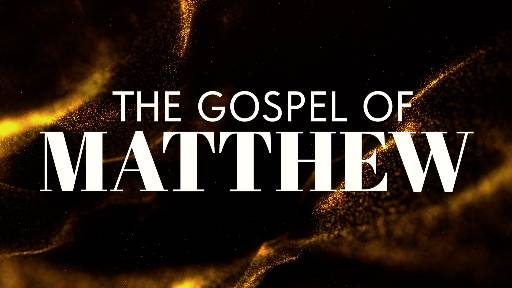-
An Order Of Precedence
Contributed by Christopher Holdsworth on Jul 15, 2023 (message contributor)
Summary: The place of children in the Church. Attitudes to riches.
AN ORDER OF PRECEDENCE.
Matthew 19:13-30.
1. In today’s passage, we see the disciples forbidding those who would bring little children to Jesus (Matthew 19:13). Sometimes people do have this strange notion that ‘Church’ is not for children. However, the Scriptures NEVER exclude children. The kingdom of God belongs to such as these (Matthew 19:14).
Jesus seems to identify ‘these little ones who believe’ (cf. Matthew 18:6) with His disciples (cf. Matthew 10:40-42). And things done/ not done ‘unto one of the LEAST of these My brethren’ shall be judged accordingly (cf. Matthew 25:40; Matthew 25:45). The child is the model for Christian greatness: ‘for he that is least among you all, the same shall be great’ (cf. Luke 9:48).
The child is the very personification of the disciple. The child is held as of little account - but is highly valued by our Lord. The child is vulnerable, but at the same time totally trusting. The kingdom of God is received by otherwise powerless persons: people who are ready and eager to be received up into the arms of Jesus.
Despite all the misgivings of the disciples, Jesus laid His hands on the little children (Matthew 19:15). What greater blessing could a parent desire for their little ones? “Suffer little children to come unto Me, and forbid them not,” says Jesus; “for of such is the kingdom of heaven” (Matthew 19:14).
2. The first three Gospels all report Jesus’ encounter with the character who has become known by the composite name of ‘the rich young ruler’. They all mention that he was ‘rich’, but only Matthew mentions that he was ‘young’ (Matthew 19:22), and only Luke mentions that he was ‘a ruler’ (Luke 18:18). This young man came to Jesus as a supplicant.
The fact that Jesus is a “good teacher” (Matthew 19:16a) had first appeared when Jesus was twelve years old (Luke 2:46-47). To the supplicant, however, Jesus re-joined, “Why do you call Me good? There is none good but God” (Matthew 19:17). This seems to imply that the young man was speaking out of turn, about things which he did not yet fully comprehend.
Now this man seemed to have had everything going for him: he was rich; he was a ruler; and, in his own eyes, he considered himself upright. Yet his question assumed that the only way that he might “have eternal life” was by “doing” something (Matthew 19:16b). A popular misconception.
The young man claimed to have kept all the commandments which Jesus mentioned (Matthew 19:18-20). How little we know our own hearts (cf. Jeremiah 17:9-10)! For the young man, the one thing preventing him was his riches (Matthew 19:21).
The young man had just claimed to love his neighbour, so Jesus put him to the ultimate test: Would he give up his riches for his poor neighbours? This was too much for the young man to bear, and he went away sad (Matthew 19:22).
3. Then Jesus began teaching His disciples how hard it is for those who trust in riches to enter the kingdom of God. “It is easier for a camel to go through the eye of a needle” (Matthew 19:23-24).
Not that everyone who is rich is told, like Barnabas, to sell all and give to the poor (cf. Acts 4:36-37). While the riches are yours, it is up to you how you dispose of them. All the Scripture asks is that you listen to God and that, unlike Ananias and Sapphira, you be honest with Him (cf. Acts 5:4).
“Who then can be saved?” asked the disciples (Matthew 19:25). They were astounded: they obviously bought into the common culture which suggests that riches are a sign of God’s approval. Jesus’ answer was that “with God all things are possible” (Matthew 19:26; cf. Luke 1:37).
Yet Peter, as the disciples’ spokesman, still wanted to draw attention to what they had all DONE (Matthew 19:27). Jesus cut him short with the reassurance that what anyone has given up for the cause of Christ will be restored a hundredfold. We find a new family among God’s people with God as our Father, and receive the free gift of eternal life besides (Matthew 19:28-29).
“Many who are first (like the rich young ruler) will be last, and the last (like the children) first” (Matthew 19:30). A process is begun by which the old order of things is being turned upside down (cf. Acts 17:6)!

 Sermon Central
Sermon Central



